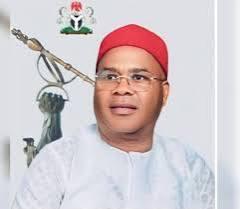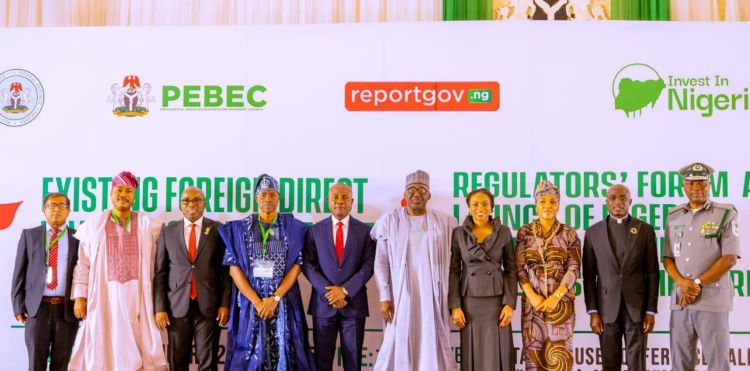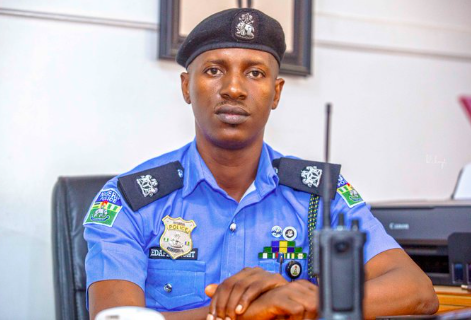By Tony Adibe
Concerned Stakeholders have emphasised on the need for Nigeria Police Act 2020 and its implications for law enforcement and citizens’ rights, advocating for general awareness and accountability in Nigeria’s policing operations.
The stakeholders made the advocacy on Wednesday during a townhall meeting held in Enugu, on “Human Rights, The Police Act 2020 and Regulations,” and emphasised the need to bridge the gap between the public and law enforcement agents in Nigeria.
NewsBits reports that the meeting focused on “Enhancing Governance: Deeping Understanding of the Police Act 2020 and Regulations Across Nigeria,”
Organized by the Rule of Law and Empowerment Initiative (RULAAC), also known as Partners West Africa Nigeria.
The 2-day workshop, which commenced Wednesday with the objective of bridging knowledge gaps between the police and the public, hammered on the importance of accountability, human rights, community policing, public awareness, and institutional reforms.
The first day session featured contributions from security experts, civil society members, and community representatives, pinpointing the potential of the Act to transform policing in Nigeria.
The Executive Director of RULAAC, Mr Okechukwu Nwanguma, while making his presentation on the Police Act 2020 /Regulation, called for the urgent need for public enlightenment and institutional accountability in enforcing the Police Act 2020 and Regulations.
According to Nwanguma, the Act, enacted on September 15, 2020, signed into law by the former President Muhammadu Buhari, marked a historic overhaul of Nigeria’s policing framework, replacing the 77-year-old law that previously governed police operations.
The RULAAC Executive Director described the Act as a “revolutionary legal framework” designed to enhance police accountability and promote human rights. Pinpointing Sections 1 and 2, Nwanguma explained that the Act focuses on creating a people-centered, transparent, and professional police force, adding that, “the new law emphasizes fairness, equity, and collaboration with communities and other security agencies.”
He also said: “The Police Act 2020 represents a significant shift in our policing framework, focusing on accountability, human rights, and professionalism.”
But Nwanguma explained that without public awareness and systemic enforcement, the Act’s transformative potential would remain untapped and unknown to the generality of the public, pointing out that the partnership between law enforcement and the public must improve.
“When citizens are informed about their rights, it strengthens their ability to hold the police accountable and fosters trust in the system,” he remarked.
A member of the Civil Liberties Organization (CLO) in Enugu State, Comrade Kindness Jonah lauded RULAAC for organizing the event, although he was pesimistic about the impact of the outcome on the citizens and members of the Nigeria police.
He argued that the practicability of the Police Act was more important since the police would claim in their slogans “The police is Your Friend,” “Bail is Free”, etc while at the same time contradicting their ear-pleasing mantras.
“Sometimes, the members of the Nigeria police treat citizens or suspects as if they are animals not worthy to live. Often, some police officers are notorious when it comes to torturing suspects. We are all familiar with cases of extra-judicial killings. We are familiar with the tragic case which the media dubbed ‘Apo Six’. Where six innocent and armless Igbo traders were brutally shot dead by the police in Abuja, and other similar wicked acts committed by the police,” he recalled.
He also said: “Even though, the police men tell us that bail is free, but when you go to bail a suspect, the police will tell you to pay. This is why I am particularly saying that the practicability of the Police Act is what matters. The letters of the Police Act are well Crafted but if they are not put into meaningful and effective practice, then one wonders where the relevance is.”
However, as if supporting Nwanguma’s points, a security and peace-building expert and consultant to Partners West Africa Nigeria, Bash Olasupo, stressed the importance of citizens knowing their rights during encounters with law enforcement agents.
“A lot of people don’t know their rights, and today’s town hall meeting is part of the efforts to change that,” Bash explained.
He outlined four principles governing the use of force by the police: legality, necessity, proportionality, and accountability, adding that “The force used must be commensurate with the situation.”
Olasupo said: “For example, if someone is holding a stick and you’re armed with a gun, shooting the person is not justifiable. The law expects professionalism and restraint.”
He also emphasised the role of community leaders in ensuring justice. “If an arrest seems illegal, community platforms and leaders can advocate on behalf of the person. This collective effort ensures the police are held accountable.”
An Enugu-based legal practitioner, Olu Omotayo, praised RULAAC’s initiative in educating the public on the Police Act. “The Act has been in existence, but many people—including some legal practitioners—are unaware of its provisions,” Omotayo said.
He emphasized key rights such as the principle that bail is free and detentions should not exceed 24 hours, as enshrined in the law. Omotayo also pointed out systemic lapses, particularly the judiciary’s failure to implement the Act’s provisions.
“The Act empowers magistrates to visit police detention centers and monitor detainees. If this had been happening, cases like the minors detained in Abuja for months could have been avoided,” he explained.
He called for collaborative efforts between the judiciary, police, and civil society to ensure that the law serves its intended purpose. On her part, Onyinye Mamah, Executive Director, Heroine Women Foundation and President, Women Support Women, stressed the importance of cascading the knowledge gained from the meeting to grassroots communities.
“This event has brought together civil societies, human rights activists, and the media—groups that are instrumental in disseminating information to others,” she said. However, Mamah expressed concerns about the gap between awareness and implementation.
“The issue isn’t just that people don’t know their rights; it’s whether the police are willing to respect those rights. People asserting their rights isn’t new, but cooperation from law enforcement is often lacking,” she noted.
Mamah’s reflections also highlighted the challenges faced by advocates in communities.
“I will share this information with the women in my constituency, but I worry about its impact if the police don’t align with the principles of fairness and justice we’ve discussed today,” she added.
NewsBits reports that some key stakeholders gathered to discuss the implications of the Nigeria Police Act 2020 and its potential to reshape law enforcement and protect citizens’ rights.





